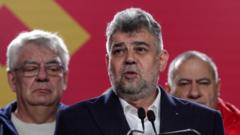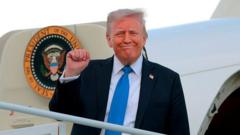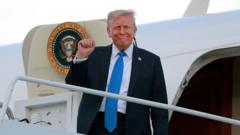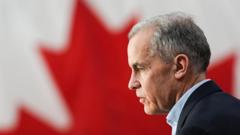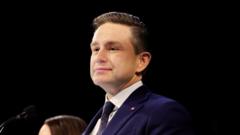As of January 6, 2025, sources indicate that Canadian Prime Minister Justin Trudeau is on the verge of stepping down as the leader of the Liberal Party, a position he has held for nearly ten years. Though this resignation would not immediately remove him from his role as prime minister, it would undoubtedly initiate a succession battle among party members seeking to replace him. Trudeau is said to face mounting pressure for his leadership, especially following the abrupt resignation of his deputy, Chrystia Freeland, which underscored growing dissatisfaction within party ranks.
**Trudeau's Imminent Resignation Sparks Liberal Party Leadership Contest**

**Trudeau's Imminent Resignation Sparks Liberal Party Leadership Contest**
Amidst increasing internal and external pressures, Prime Minister Justin Trudeau is expected to announce his resignation as Liberal Party leader, igniting a competitive race for succession and shaping Canada's political future.
Since becoming prime minister in 2015, Trudeau has navigated a number of significant political landscapes and crises, from climate change policies to the COVID-19 pandemic. However, his administration is now marked by declining public support and internal discord. Recent polling indicates that a significant majority of Canadians believe he should resign, highlighting his waning popularity.
Should Trudeau officially resign as party leader, the Liberal Party faces a choice between a grassroots leadership election process, which may take several weeks, or a swifter caucus vote. This situation puts additional pressure on the party and raises questions about its readiness for upcoming elections, which experts suggest could occur in the spring of 2025.
Trudeau’s leadership journey has been one of highs and lows; once buoyed by strong public support, he now contends with criticisms related to economic management and housing affordability, among other issues. As speculation grows regarding potential successors, prominent figures such as Chrystia Freeland may emerge as contenders, along with other notable Liberals like Dominic LeBlanc and Mélanie Joly.
As Canada prepares for a critical juncture in its political landscape, the future of the Liberal Party and federally elected governance hangs in the balance, reflecting the complex interplay of leadership dynamics, public sentiment, and party unity in the coming months.
Should Trudeau officially resign as party leader, the Liberal Party faces a choice between a grassroots leadership election process, which may take several weeks, or a swifter caucus vote. This situation puts additional pressure on the party and raises questions about its readiness for upcoming elections, which experts suggest could occur in the spring of 2025.
Trudeau’s leadership journey has been one of highs and lows; once buoyed by strong public support, he now contends with criticisms related to economic management and housing affordability, among other issues. As speculation grows regarding potential successors, prominent figures such as Chrystia Freeland may emerge as contenders, along with other notable Liberals like Dominic LeBlanc and Mélanie Joly.
As Canada prepares for a critical juncture in its political landscape, the future of the Liberal Party and federally elected governance hangs in the balance, reflecting the complex interplay of leadership dynamics, public sentiment, and party unity in the coming months.







